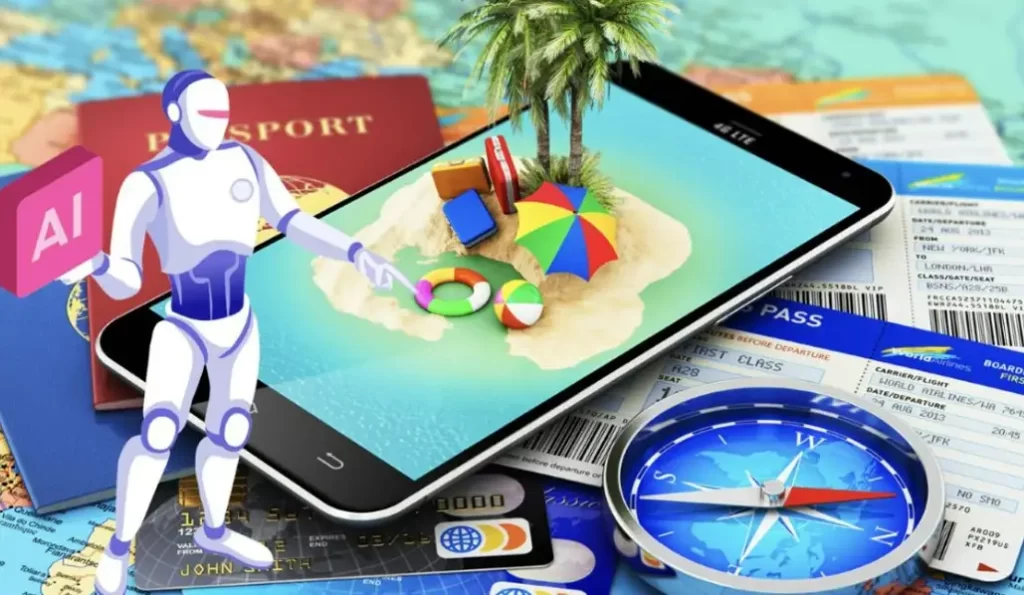Artificial Intelligence: Transforming Tourism Management in the 21st Century
In a world where digitalization is advancing by leaps and bounds, the tourism sector is at a decisive crossroads.
Those companies that adopt Artificial Intelligence (AI) as a strategic ally will not only optimize their processes, but will also gain a significant competitive advantage in an increasingly saturated market.

Cost reduction: The new operating paradigm
The implementation of AI-based solutions makes it possible to automate repetitive tasks that traditionally consumed valuable human resources.
From reservation management to customer service, AI frees travel professionals to focus on what really matters: creating memorable experiences for travelers.
AI systems can process thousands of requests simultaneously without making errors, drastically reducing operating costs.
A recent study reveals that tourism companies that have adopted these technologies have been able to reduce their administrative costs by up to 35%.
Customized itineraries: The end of generic packages
Perhaps one of the most revolutionary advances is the ability of AI to create fully personalized itineraries.
By analyzing preferences, previous behaviors and budgets, algorithms can design unique experiences for each customer.
A traveler interested in local cuisine who prefers boutique accommodations and sustainable transportation will receive a completely different itinerary than a family with young children looking for recreational activities and comfort.
This hyper-personalization was unthinkable just a decade ago, when standardized packages dominated the tourism offer.
Multilingual content: Breaking down geographic barriers
The language barrier has historically been an obstacle for many tourism companies with international ambitions.
AI has democratized access to global markets by automatically generating content in multiple languages.
From destination descriptions to hotel reviews, AI systems can produce natural and culturally appropriate text for any audience.
This capability not only improves the user experience, but also positions companies favorably in local search engines, increasing their visibility in foreign markets.
Channel optimization B2B and B2C
Online reservation systems, both for business-to-business (B2B) and business-to-consumer (B2C) relationships, have become exponentially more efficient thanks to AI.
Predictive algorithms can anticipate demand, adjust prices in real time and recommend complementary products, thus maximizing the value of each transaction.
In the B2B arena, AI facilitates systems integration between tour operators, hotel chains and service providers, creating a cohesive digital ecosystem where information flows without friction.
For the B2C segment, the user experience is significantly improved thanks to intuitive interfaces and personalized recommendations.
The future is today
The digital transformation of the tourism sector is no longer an option, but an imperative necessity. Companies that resist this evolution run the risk of falling behind in a market that rewards innovation and efficiency.
The good news is that the adoption of AI-based solutions is becoming increasingly accessible, even for small and medium-sized companies.
Software as a service (SaaS) platforms allow the implementation of these technologies with moderate initial investments and quickly visible returns.
In conclusion, AI does not come to replace the human factor in the tourism industry, but to enhance it.
By freeing professionals from routine tasks and providing them with advanced analytical tools, technology allows them to focus on what no machine can replicate: the warmth, empathy and creativity that transform a simple journey into a transformative experience.

